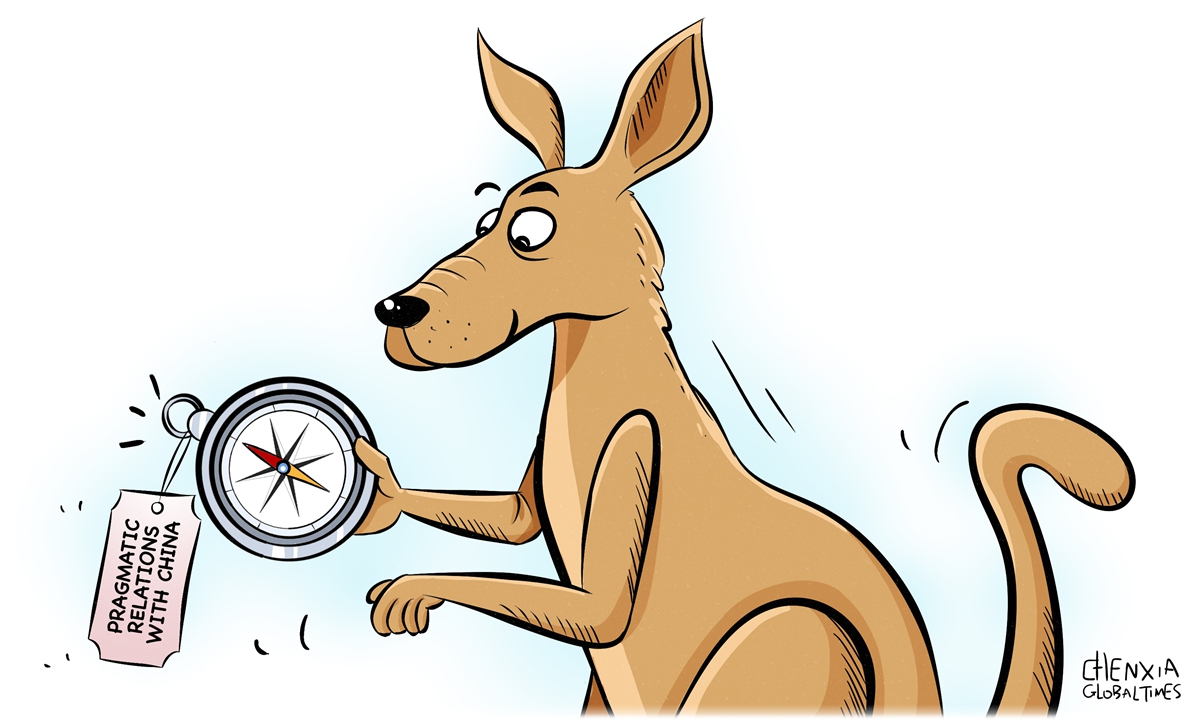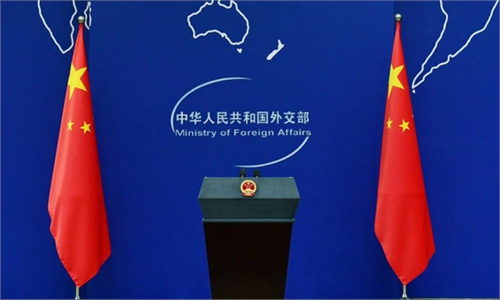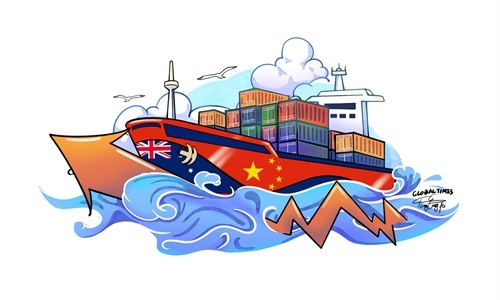
Illustration: Chen Xia/GT
Recently, discussions within Australia have intensified regarding the trajectory of China-Australia relations, as various voices attempted to offer "road maps" for the direction the Anthony Albanese administration should take. Last week, the Australian Labor Party secured a decisive victory in the federal election, with Albanese becoming the first Australian leader in 21 years to be re-elected. Consequently, the state of China-Australia relations under Albanese 2.0 has become a focal point of public discourse.
For instance, a Lowy Institute article on Wednesday suggested that Canberra should "speak up" about Beijing's "human rights issues." Similarly, the infamous Australian Strategic Policy Institute continues its anti-China agenda by labeling China "the most active state engaged in hybrid threats targeting Australia." These perspectives underscore a segment of Australian discourse that views China through a confrontational lens and aims to increase suspicion and hostility toward the country.
Chen Hong, a professor and director of the Australian Studies Centre at East China Normal University, told the Global Times that these narratives are clearly aimed at complicating the bilateral relationship. It is essential for the Australian government to remain vigilant against such attempts to sow discord.
Under the Albanese administration, the strained China-Australia relationship has been repaired to a certain extent. Albanese repeatedly emphasized that China is an important trading partner for Australia and highlighted the significance of developing bilateral relations. His administration adopted a strategy that contributed to stabilizing ties, resulting in the resumption of high-level dialogues and a gradual easing of trade tensions between the two countries.
Chen added that he is positive that Albanese 2.0 will witness the China-Australia relationship maintaining its current stability. Canberra will likely work hard to promote Australia's interests. "Especially in a world filled with growing uncertainty, Australia wants to create more certainty by itself, rather than sitting back and waiting for external uncertainty to wreak havoc on Australia's policy, or even change it," he said.
Today, China-Australia relations remain in a gradual process of rebuilding and restoring trust. This progress should not be taken for granted. Of course, there are differences between China and Australia, but the key lies in how those differences are managed. Those divergences should not overshadow the cooperative aspects of the bilateral ties. There is still significant potential for cooperation between the two countries. Their economies are highly complementary, and there are major opportunities for collaboration in emerging fields, such as renewable energy, the digital economy and artificial intelligence. In addition, ties in education, tourism and cultural exchange continue to grow stronger.
At a time when the global economy is slowing and geopolitical tensions are rising, China and Australia - both major players in the Asia-Pacific - should continue to choose the path of dialogue and cooperation. A sustained pragmatic and rational approach to China under Albanese 2.0 will help take the bilateral relationship to a new level of mutually beneficial cooperation, which would not only serve both countries' interests but also support stability and development in the region. Experience in recent years has shown that blindly following Washington's lead and treating China as a strategic adversary has harmed Australia's diplomatic independence and dealt real blows to its economy. Learning from those lessons and continuing to pursue a pragmatic and balanced China policy is the right strategic path for Australia.



